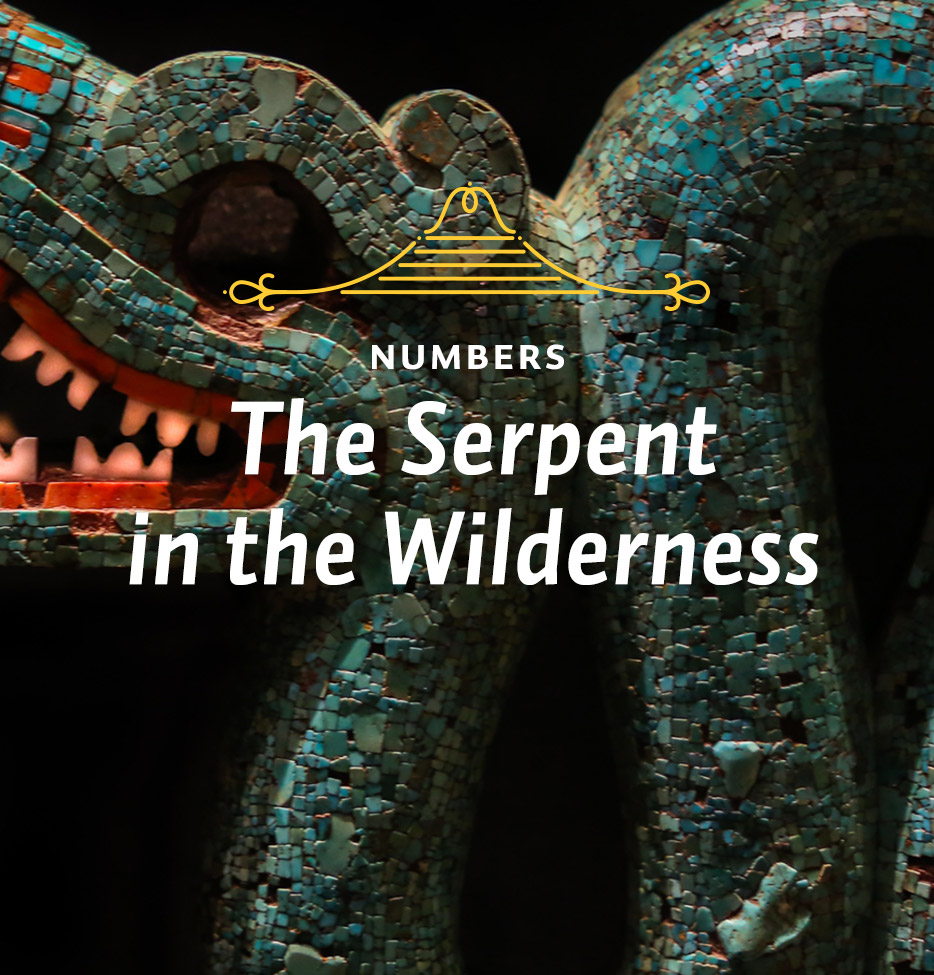Numbers 20, which records the deaths of Miriam and Aaron, as well as Moses’ sin of striking the rock, which resulted in God’s punishment of not being allowed to enter the promised land, was a chapter of almost unremitting gloom. But in chapter 21 this mood begins to change because here we have the beginning of the actual march upon Canaan and the first victory, leading up to the full possession of the promised land.
Numbers 21 begins with a reference to the Canaanite king. Up to this point, the Israelites in their wanderings had only come up against Edom, but Edom was a brother nation, and God had said explicitly that they were supposed to treat the Edomites well. But now here, for the first time, they are in conflict with the Canaanites, the people who possessed the land. A battle ensued, and the Israelites completely destroyed them and their towns (v. 3). The destruction of the Canaanite king of Arad, who lived in the southern area of the country, was the beginning of the battles that were actually going to lead in time to the full possession of the land.
It is significant that they called the name of the place Hormah. Now Hormah means “destruction,” and it’s an appropriate name to give to any place where there had been a great battle such as this one. But what makes that word particularly significant is that thirty-eight years before, when the people decided to go into the promised land without God’s approval, they experienced a great defeat at a place called Hormah. We don’t know whether this is the same place or not, but it was in that area of the country. Now the tide had turned. Thirty-eight years before the Israelites had been destroyed. Now it was the Canaanites who were beginning to be destroyed.
This same idea holds throughout the chapter. Beginning at verse 10, we see that the people start to move out from Moab, which is located in Transjordan on the eastern side of the Jordan River. They have battles against Sihon and the Amorites, as well as against Og, the king of Bashan, who along with his sons were struck down. The Israelites left no survivors and they took possession of his land (see v. 35). Bashan is part of Transjordan, and this is where Reuben, Gad, and half of the tribe of Manasseh would settle. The land is being conquered now and this chapter marks the beginning of it.
Yet that’s not what interests us most about this chapter. What we find most interesting is the strange story about the bronze snake. Jesus refers to this in one of the best-known chapters of the New Testament. In John 3, Jesus is unfolding to Nicodemus, a ruler of the Jews, some of the most important doctrines in the entire Bible, doctrines that center entirely in Him. He talks about Himself as the Son of Man who came down from heaven, the need for the new birth and the work of the Holy Spirit, and the love of God through the lifting up of the Son. Then He says, “Just as Moses lifted up the snake in the desert, so the Son of Man must be lifted up, that everyone who believes in him may have eternal life” (John 3:14-15).
Jesus singles out this incident as teaching something of great importance about the incarnation and the love of God in saving sinners. The bronze serpent is the great example for how God does this. Just as Moses lifted up the snake so that people who were perishing because of the venomous bites of the serpents were saved by looking to it, so people today who are perishing because of sin can be saved by looking in faith to Jesus Christ, who was lifted up on the cross.
This story begins with the complaints of the people, and these are some of the most outspoken complaints of all. For the first time they’re beginning their march on Canaan. They had their first victories over the Canaanites and are beginning to possess the land. Yet they are still the same people, complaining about the food.
I can understand complaining about food in general, but the cause of it here is clear because of the route they have to take. They came up from the south into the Negev, but now they have had to go back, take the road from the Red Sea to go around Edom, come up on the far side of the mountains, and then enter the promised land from the east. That was an enormous and very difficult detour. To people who felt as if they were on the verge of conquest, this must have seemed like a terrible regression. Instead of going forward, they were going back into the desert where so many of them had perished during the thirty-eight years of wandering. And furthermore, they had to eat the same “miserable food” (Num. 21:5), as they called it. They have complained before, but nowhere else have they spoken quite as badly of the food.






